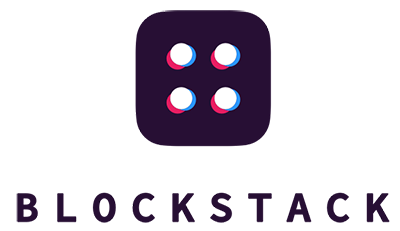Nerding on Crypto - Part 2
Bitcoin, Ethereum, and now...Blockstack? Oh yes - and it is so good.

Part of the problem with cryptocurrencies is they are hard. They aren't really built for "the common man," which really is code for Boomer, but that's another story. As a GenXer approaching the "get off my lawn" stage of life, I've been intrigued by people that hope to make crypto easier - to the point where it's as easy as say, working with a bank. Enter Coinbase. But this isn't a story about them. This is a story about the next evolution of cyrpto currencies - Web 3. In particular, Ethereum and now, Blockstack.
Where Coinbase and a few others brought the crypto currencies themselves to the masses - making it easy to buy and sell tokens just like you would a stock, there's more to the story of economic freedom. There's a whole new distributed computing ecosystem that is being developed and it uses these cryptocurrencies as the "fuel" to power them and secure them. Ethereum is likely the best known of these Web3 platforms. Yes, it is a cryptocurrency - second only to Bitcoin in market capitalization.

But, unlike Bitcoin which is JUST a cryptocurrency, Ethereum is so much more. First, it's a completely separate network - Bitcoin miners and Etherem miners are different things. Second, they use different mechanisms to secure themselves and generate new coins. Bitcoin uses a thing called Proof of Work - literally, a "miner" does stupid complex math problems to create new coins. Ethereum uses a mechanism called Proof of Stake (in 2.0 - going for shelf life of this damn article). This means that to run a miner, you have to lock up a certain amount of existing coins (a LOT) to have a shot at getting mine the next coin - also worth a lot. Both have pros and cons, but Ethereum is much more eco-friendly. Third - and this is key - Ethereum also RUNS code (called Smart Contracts). You can "pay" the network to execute code (written in a language called Solidity) and the execution of that code, and its results, can be anchored to the chain itself. This is HUGE for decentralized and distributed computing.
The downside to Ethereum and Solidity is that A) it's an order of magnitude smaller than Bitcoin in terms of sheer horsepower and secure mining. B) Solidity is really freaking hard and has to be compiled to be executed on nodes. This has opened it up to some really amazing hacks exposing and losing millions of dollars. Much of that has been solved, but many challenges remain. Wouldn't it be great if you could get the amazing compute power of Ethereum, but with the security of Bitcoin AND an interpreted language that is a lot more predictable? Now enter my second favorite crypto world - Blockstack.org.

Blockstack is a blockchain, just like Bitcoin and Ethereum. But Blockstack anchors to the Bitcoin blockchain as a place to record settlement and leverage the phenomenal scaling and security of that chain. It then adds the amazing flexibility and computational love of Ethereum, but without many of the risks AND introducing more tooling/capabilities for developers. With Blockstack, you get a blockchain that can quickly execute smart contracts and transfers (in seconds, unlike Bitcoin that takes 10s of minutes), provides an entire protocol layer for storage, authentication, naming, etc., AND uses a MUCH more developer friendly language called Clarity. It's like the best of many worlds, smooshed together.
Where do I come in here? Well, I've been a huge fan of the original inventors of Blockstack (Muneeb and Jude, and others) since they invented a distributed, trustless naming server way back in the day called onename.io. After that platform graduated to Blockstack (1.0), they also brought a great deal of security, authentication and and application portfolio design to the masses while they developed the 2.0 version. It launched this past Thursday and was quite a treat to see!
The blockchain launched around noon central time and I was very fortunate to be one of the original 20 miners. Blockstack's mining ecosystem is still brand new and working out the kinks. It uses a novel technology called Proof of Burn - ie, in order to get the reward of mining the next block, everyone throws in some Bitcoin. The more Bitcoin you throw in, the higher chance you have of getting the next Blockstack block reward. Pretty slick - it makes it so you leverage Bitcoin's security and get the ecosystem of Blockstack.

I wasn't able to mine for long - it's a bit like playing Roulette. I put in the default amount to burn (about $35 every 10 minutes) but didn't win any. Had I won, that $500 I had burnt on Bitcoin would have yielded me 1,000 Stacks - the Blockstack currency, which would had been worth about $1,500 (as of last Thursday). Alas, I was also having troubles with my Bitcoin node and transactions not getting accepted. SO, instead, I decided to wait till things settle down, kinks get worked out and then I'll be delighted to jump back in.
Really great to see such a fun ecosystem of currency, apps, and security all coming together! Go Blockstack go! And now - cuteness:

